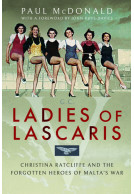Crime, Clemency and Consequence in Britain 1821 - 1839 (ePub)
A Slice of Criminal Life
Imprint: Pen & Sword History
File Size: 767.4 KB (.epub)
Pages: 169
ISBN: 9781473830332
Published: 6th September 2017
| Other formats available | Price |
|---|---|
| Crime, Clemency and Consequence… Paperback Add to Basket | £12.99 |
From the woman who steals a cloak, to the highwayman and the middle-class forger, this book allows us a glimpse of the rich mix of criminals, their crimes and sentences, in early 19th Century Britain. With no statutory right of appeal against either the verdict or sentence at this time, the prisoner's only hope for relief was to petition the Crown for mercy via the Home Office, and with sentences including death and transportation, the stakes were high. The petitioner's objective was to prove the prisoner worthy of mercy, usually by establishing their respectability, and it is upon these petitions this book draws. Many of the thousands of petitions, held by the National Archives in Kew, reveal fascinating incidental information about the prisoner's personal life or circumstances which cannot be found in other records. The supporting documentation, witness depositions or character references, often give us rare details of everyday routines, working conditions, illnesses, relationships, and life in a locality. As cases are followed in this book, some far beyond the Home Secretary's decision, the criminals, supporters, prosecutors and judiciary are brought to life, occasionally with surprising results. Read as individual cases, each subject is fascinating; viewed together, the collection reveals a unique, intimate and vivid insight in to life in 1820s and 1830s Britain.
In summary, this book is an interesting introduction to the history of criminal justice and the way the system worked prior to the formation of the court of criminal appeal, and by focusing on the letters appealing for clemency, it offers an original insight into the social conditions of the past.
Crime Review
Read the complete review online here.
Historians often use court and Home Office records to reconstruct the key events of a crime and perpetrators through this official documentation yet they are unable to understand the lives of people involved. The documents used to research this book, however, reveal in great detail the personal circumstances of the criminal and their families. This allows the reader to understand the prisoner as an individual, opening up a level of detail of the crimes committed and the life of what was often the ordinary working man and women.
Police History Society
As featured in 'Book news in brief'
Family Tree, January 2018
As featured in
Surrey Constabulary History Journal
As featured in
Sussex Local
As featured on...
Lil's Vintage World, YouTube
This well-researched book reveals the details of a selection of petitions from the 1820s and 1830s.
Who Do You Think You Are? Magazine, November 2017 - reviewed by Angela Buckley
Alison's examination of the criminal justice system in Great Britain in the early years of the nineteenth century makes for a fascinating read. If only some of the penalties were still available to the judges and magistrates today! Sometimes I feel that the prison reformers have erred too far on the side of the miscreants... a superb book.
Books Monthly
Fascinating piece of research, all from official sources and presented in an accessible way. Easy to dip in and out of, but each time making you want to return and learn more. Just how people survived back in those days is a mystery, with the poverty and horrendous punishments, sometimes for trivial crimes that were the only option people had for survival. Highly recommended.
Mike Epstein
About Alison Eatwell
Educated at both Warwick and London University (Bedford College), Alison spent many years working for BBC Television before becoming a writer. At the BBC she was an award-winning drama producer as well as having roles in drama-related management. She has been a volunteer cataloguer/editor at the National Archives in Kew since 2011, and is part of the Local History Research Group currently working on the Criminal Petitions for Mercy project.
She is currently working on a portfolio of non-fiction and fiction projects, independently and as part of a team. Alison lives in Sussex and is a long-term supporter of Arsenal FC.















